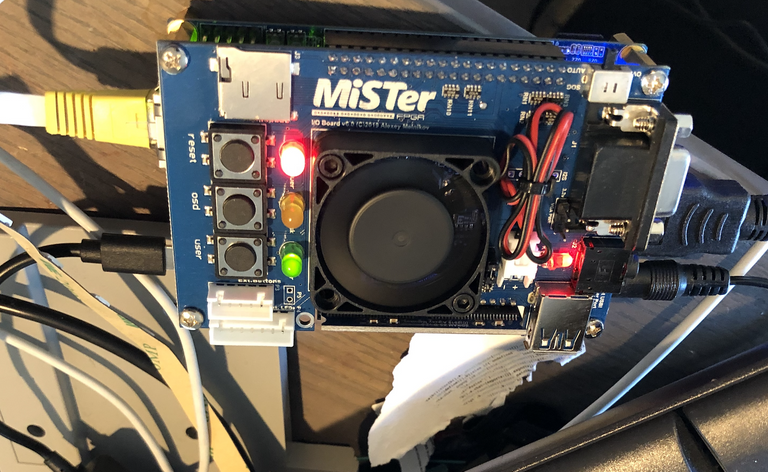Have you met MiSTer? Is FPGA the future of Retro Gaming?

For many, MiSTer, and FPGA projects like it, are the future of retro computing and gaming. Why? What about it has people so excited that they will pay 4x the price or more?
How would you like a compact machine that can super accurately replicate retro arcade systems hardware, computers and consoles down to the instruction cycle level?
No, I am not talking about a Raspberry Pi running emulation, I am talking about the actual hardware being recreated in an FPGA (Field Programmable Gate Array).
You see, rather than a piece of software interpreting the instructions the way the original computer hardware would, or a good approximation, the actual circuits and logic are recreated on the FPGA so essentially it virtually is the original hardware.
In theory, this is the closest you can get to original hardware in 2020 without, you know, the original hardware. As the original hardware decays, becomes scarce, breaks down, and becomes bloody expensive, FPGA is increasingly coming to the rescue.
It's not just for full systems either. Projects are proliferating that replace hard to come by custom chips that can often run for almost the same cost as a full working computer.
For a casual gamer is it better than RetroPie? Probably not. Aside from the much higher cost, right now the Pi emulates more machines than there are cores available on MiSTer. Plus, emulation is getting better and better.
For super tight accuracy situations, FPGA implementations do usually beat out emulation, however. This can be vital in education and research fields where having a bunch of orginal hardware is cost-prohibitive, the original hardware is fragile, historical preservation, or where it is more convenient to develop using a unit that replicates the original but can be connected to modern peripherals (HDMI, USB, Ethernet/Wifi, etc).
Increasingly hardware replacement boards implementing FPGA will feature the ports and connections of the original hardware too, whereas emulation will not. For example the Ultimate 64 that replaces Commodore 64 motherboards allows you to use original cartridges, and the ZX Spectrum Next even allows you to load games from tape. For data recovery or archival, that can be the difference between something valuable being lost forever.
What do you think? Interested in giving MiSTer or other FPGA based system a try?
See also:
Amiga emulation on Raspberry Pi Raspberry Pi Amiga Emulation
I've got a whole stack of Acorn CLE 200 FPGA boards with Xilinx Artix 7- 200s with twice as many Logic cells as the MISTer. Looking for something worthwhile to do with them. Same at Nitefury https://github.com/RHSResearchLLC/NiteFury
Maybe retro gaming is an option?
I haven't seen that FPGA before :) My Papillio has some 8-bit cores such as Z80/CPM and Speccy, and the ZX Next core (TBBlue) is being worked on for other boards - I believe the RAM conversion is the main sticking point.
My Acorn CLE 200s has 1Gb DDR3 on board. Main problem is M.2 interface and only about a dozen exposed GPIO pins.
You can achieve cycle exact emulation in software as well as in hardware though your operating system can make it difficult. There are also various cables and devices that allow you to connect original peripherals (like say a Commodore 1541 disk drive) to your PC. I think the hardware solutions are nice for those that want to use "original" hardware to some degree (e.g. replacing original chips, motherboard, etc. with FPGA implementations) but I don't think it is necessary for near perfect emulation or data recovery (at least in the vast majority of cases).
Yeah I have the zoom floppy and SD2IEC for my C64 but both are still not 100% as using original hardware and the FPGA solution is still closer. Don't get me wrong, I am a big fan of emulation, but there was a definite step up going from BMC64 to Ultimate 64, and in many ways it is more convenient than the original breadbin and C64C that I still love :)
Upvoted by GITPLAIT!
We have a curation trial on Hive.vote. you can earn a passive income by delegating to @gitplait
We share 80 % of the curation rewards with the delegators.
To delegate, use the links or adjust 10HIVE, 20HIVE, 50HIVE, 100HIVE, 200HIVE, 500HIVE, 1,000HIVE, 10,000HIVE, 100,000HIVE
Join the Community and chat with us on Discord let’s solve problems & build together.